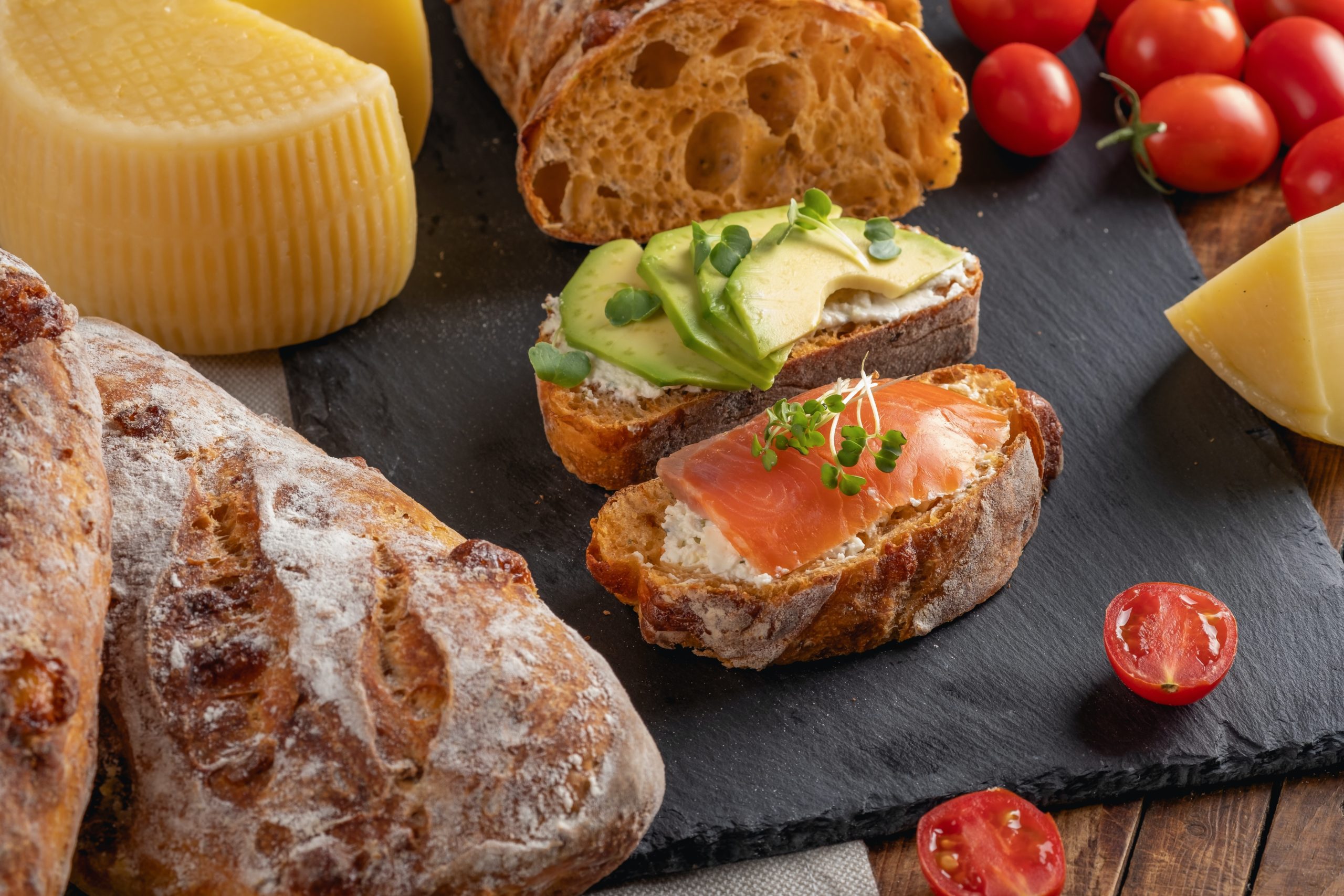The Role of Food in Moldovan Culture and Relationships

Moldova is a small country located in Eastern Europe, rich in history and culture. One of the most significant aspects of Moldovan tradition is its cuisine, which reflects the country’s diverse cultural influences. Food plays an essential role in Moldovan society, from daily meals to special occasions and celebrations. In this blog post, ukrnetia.com explores how food brings people together in Moldova and learn about the unique flavors that make up their culinary culture. Join us on a journey through Moldovan cuisine and discover the importance of food in relationships and hospitality!
The Importance of Traditional Moldovan Dishes in Culinary Culture
Moldovan cuisine is a blend of traditional dishes passed down through generations, combined with influences from neighboring countries such as Ukraine and Romania. One of the most popular Moldovan dishes is mamaliga, a type of cornmeal porridge that can be served with cheese, sour cream or meat.
Another staple of Moldovan cuisine is placinta, a savory pastry filled with cheese, potatoes or cabbage. This dish is often eaten for breakfast or as a snack throughout the day.
Sarmale are another traditional dish in Moldova; they consist of minced pork mixed with rice and spices wrapped in pickled cabbage leaves. Sarmale are typically served during special occasions such as weddings and holidays.
Read also: How to Impress a Moldovan Woman’s Family
Moldova also has its unique take on soups: zeama – chicken soup with lemon juice -, borscht – beetroot soup-, ciorba de burta – tripe soup- are among some of the favorites among locals.
These traditional dishes not only provide sustenance but serve an essential purpose in preserving cultural heritage. They represent the history and traditions that have been passed down through generations and offer a sense of comfort rooted in tradition to those who enjoy them today.
How Food Brings People Together in Moldova
Moldovan people have a strong cultural attachment to food, and it plays a significant role in bringing families and friends together. For Moldovans, food is more than just sustenance; it’s an expression of hospitality, generosity, and love.
In Moldova, sharing meals with family members or guests is considered an essential social activity. The process of preparing traditional dishes takes time and effort that requires the participation of everyone in the household. This communal approach to cooking creates a sense of unity among family members as they work together towards making delicious meals.
Moldovans also believe that food helps them connect with others on a deeper level. When hosting guests for dinner or special occasions such as weddings or baptisms, offering plentiful amounts of food is seen as a sign of respect and appreciation for their presence. Guests are often encouraged to take seconds or even thirds until they’re completely satisfied.
Furthermore, eating together fosters conversation and strengthens relationships between individuals. Sharing stories over plates piled high with delicious traditional dishes like mamaliga (polenta) or sarmale (cabbage rolls) brings people closer by creating memorable experiences centered around the joy of eating.
It’s clear that Moldovan cuisine has played an integral part in shaping the country’s culture and relationships by bringing people together through shared experiences centered around delectable traditional dishes.
Celebrating Special Occasions with Traditional Moldovan Cuisine
Moldovan cuisine is deeply ingrained in the country’s culture and traditions. This is especially evident when it comes to celebrating special occasions such as weddings, baptisms, birthdays, and holidays. For Moldovans, food plays a crucial role in these celebrations.
During special occasions, traditional dishes are prepared with great care and attention to detail. These dishes vary depending on the region of Moldova but have some commonalities across the country. A popular dish during celebrations is sarmale – cabbage or grape leaves stuffed with seasoned meat and rice.
Another must-have dish during festivities is placinta – savory pies filled with cheese, potatoes or cabbage. Other delicacies include mititei (grilled minced meat rolls), zeama (chicken soup served with sour cream) and mici (grilled ground beef sausages).
It’s not only about what’s being served but also how it’s being served that matters. In Moldova, special occasions are often celebrated family-style where all guests sit together at one table sharing platters of food while enjoying each other’s company.
In addition to bringing people together around delicious meals, celebrating special occasions with traditional Moldovan cuisine helps keep cultural traditions alive from generation to generation while showcasing their unique culinary heritage.
In summary, there’s something truly magical about enjoying traditional Moldovan dishes during celebratory events surrounded by loved ones which make for unforgettable memories that will last a lifetime!
The Significance of Hospitality in Moldovan Dining
Moldovan hospitality is legendary, and it’s not just because of the delicious food. For Moldovans, welcoming guests into their homes and treating them to a feast is an essential part of their culture. Hospitality in Moldova means going above and beyond to make sure that every guest feels comfortable, well-fed, and happy.
One aspect of Moldovan hospitality that visitors often remark upon is the generosity of hosts. It’s not uncommon for a family to prepare far more food than necessary when expecting guests – this way they can ensure that everyone has seconds or even thirds if they want. Additionally, it’s customary for hosts to offer plenty of drinks (both alcoholic and non-alcoholic) throughout the meal.
Moldovans also value spending time with their guests during meals. While eating quickly might be common in other cultures, in Moldova there’s no rush to finish your plate – instead, diners are encouraged to take their time chatting with one another over multiple courses.
Hospitality in Moldova extends beyond mealtimes themselves. Guests are typically offered tea or coffee after dessert as a sign that they’re welcome to stay longer and continue socializing. And if you happen to be staying overnight at someone’s home? Don’t be surprised by the extra blankets on your bed or freshly laundered towels waiting for you in the bathroom – these small touches represent yet another aspect of Moldovan warmth and hospitality!
The Relationship Between Food and Romance in Moldova
In Moldovan culture, food plays a significant role not only in daily life but also in romantic relationships. Sharing traditional dishes with your loved one is an intimate experience that creates a special bond between the two of you.
Moldovan cuisine is known for its hearty and flavorful dishes such as mămăligă (cornmeal porridge), sarmale (stuffed cabbage rolls), and plăcintă (savory pastry). These foods are often shared during romantic dinners or dates, where couples can enjoy each other’s company while indulging in delicious meals.
In addition to being tasty, these traditional dishes have cultural significance. Cooking together or sharing a meal prepared by your partner shows appreciation for their heritage and traditions. It’s a way to connect on a deeper level and learn more about each other’s backgrounds.
Food also has the power to evoke emotions and memories, which can strengthen the emotional connection between partners. Eating foods that remind you of childhood or family gatherings can create feelings of comfort and nostalgia, making it easier to open up and be vulnerable with your partner.
Food plays an essential role in creating meaningful moments for couples in Moldova. From cooking together to sharing traditional meals, it brings people closer together emotionally while satisfying their taste buds at the same time.
Exploring the Unique Flavors of Moldovan Cuisine
From the delicious sarmale to the sweet and savory placinta, Moldovan cuisine is truly unique and flavorful. Food plays a significant role in Moldovan culture, from bringing people together to celebrating special occasions. The hospitality of the country is also closely tied with food, making it an essential part of any visit to Moldova.
Read also: Moldovan Women and Their Attitude towards Age Differences in Relationships
Exploring traditional Moldovan dishes not only allows you to taste new flavors but also offers insight into the country’s rich cultural heritage. By experiencing new foods and dining customs, visitors gain a deeper understanding of local traditions and values.
If you are planning a trip to Moldova or simply want to expand your culinary horizons, exploring its unique flavors should be at the top of your list. Whether enjoying a home-cooked meal with locals or sampling street food in Chisinau’s bustling markets, there is no shortage of opportunities for discovering the diverse tastes that make up this incredible cuisine.


